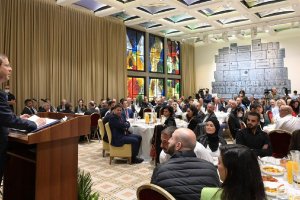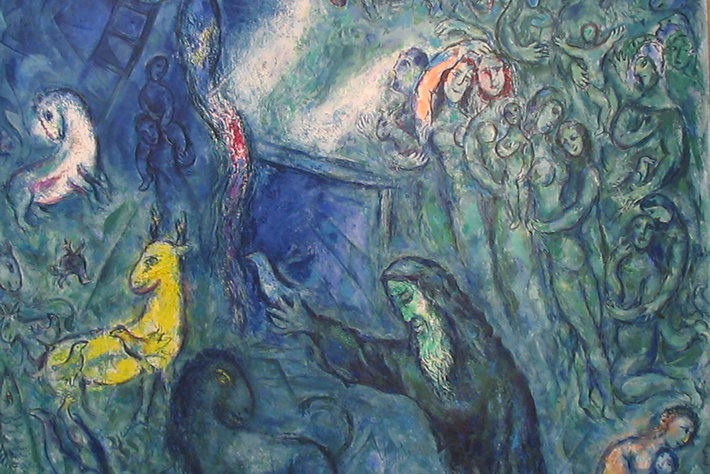On April 8, Jewish families the world over will take part in the annual seder—the dinner commemorating the first night of Passover.

Some 70 percent of American Jews attend a seder each year. In Israel, the tradition is even stronger with 93 percent of the Jewish population participating.
The Times of Israel describes it as “packed with ritual observances and religious feasts…the quintessential shared holiday experience” in which “the songs, customs and food, have become a core part of Jewish tradition.”
But Passover celebration this year will be very different from the traditional large gatherings where the extended family comes together. In most parts of the world, restrictions adopted to stem the coronavirus pandemic will make this impossible.
Israel has banned gatherings of more than 10 people at any one time. And residents are permitted to travel only 100 meters from their homes.
And while many have made plans to connect through the internet, these restrictions have made Passover celebrations particularly challenging for Orthodox Jewish families.
As reported by the Jerusalem Post, “Orthodox practice prohibits use of electricity on Shabbat [the sabbath], but rabbis ruled it was important for families to connect to grandparents for the Passover Seder.” Because of the current emergency, “senior Orthodox rabbis have given permission for people to use the Zoom video conferencing service at the Passover Seder to allow families separated by the coronavirus pandemic to connect with one another on what is one of the high points of the Jewish calendar.”
New York City, now the international epicenter of the coronavirus pandemic, is home to some 1.5 million Jews. In fact, the City has the world’s second-largest Jewish community after the Tel Aviv metropolitan area. To those contemplating this year’s Passover, it must be hard to ignore the stark similarity between what they are experiencing today and events recited in the traditional Passover ceremony, in which the youngest child asks the Four Questions, which begins with “Why is this night different from all other nights?”
Through the answers to the questions, the story of the Exodus is recounted in which God visited 10 plagues upon the people of Egypt, ironic in its similarity to the “plague” we are facing in the here and now.
In an interview with CNN March 31, Dr. Anthony Fauci, director of the National Institute of Allergy and Infectious Diseases, said “We’re starting to see glimmers that (social distancing) is actually having some dampening effect” on the spread of coronavirus.
“I want everyone at home to know that even though it seems like staying at home is futile, it’s not,” Dr. Cornelia Griggs, a pediatric surgery fellow at Columbia University, told CNN. “We need everyone at home to hold the line, stay at home. Buy us time, flatten the curve.”
_______________
From its beginnings, the Church of Scientology has recognized that freedom of religion is a fundamental human right. In a world where conflicts are often traceable to intolerance of others’ religious beliefs and practices, the Church has, for more than 50 years, made the preservation of religious liberty an overriding concern.
The Church publishes this blog to help create a better understanding of the freedom of religion and belief and provide news on religious freedom and issues affecting this freedom around the world.
For more information visit the Scientology website or Scientology Network.


